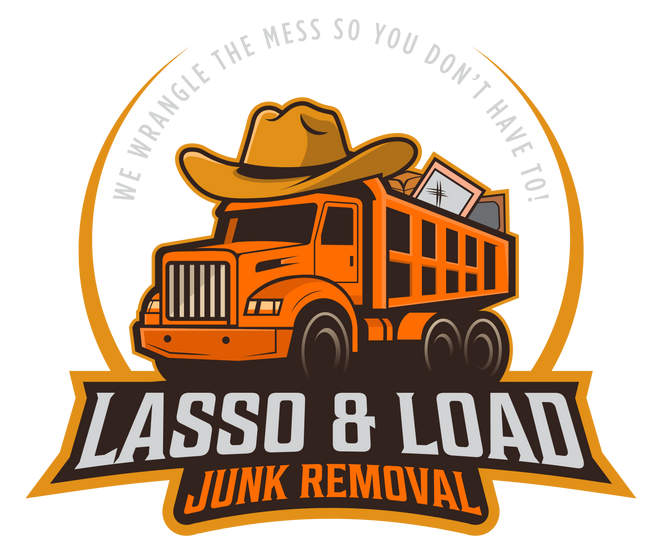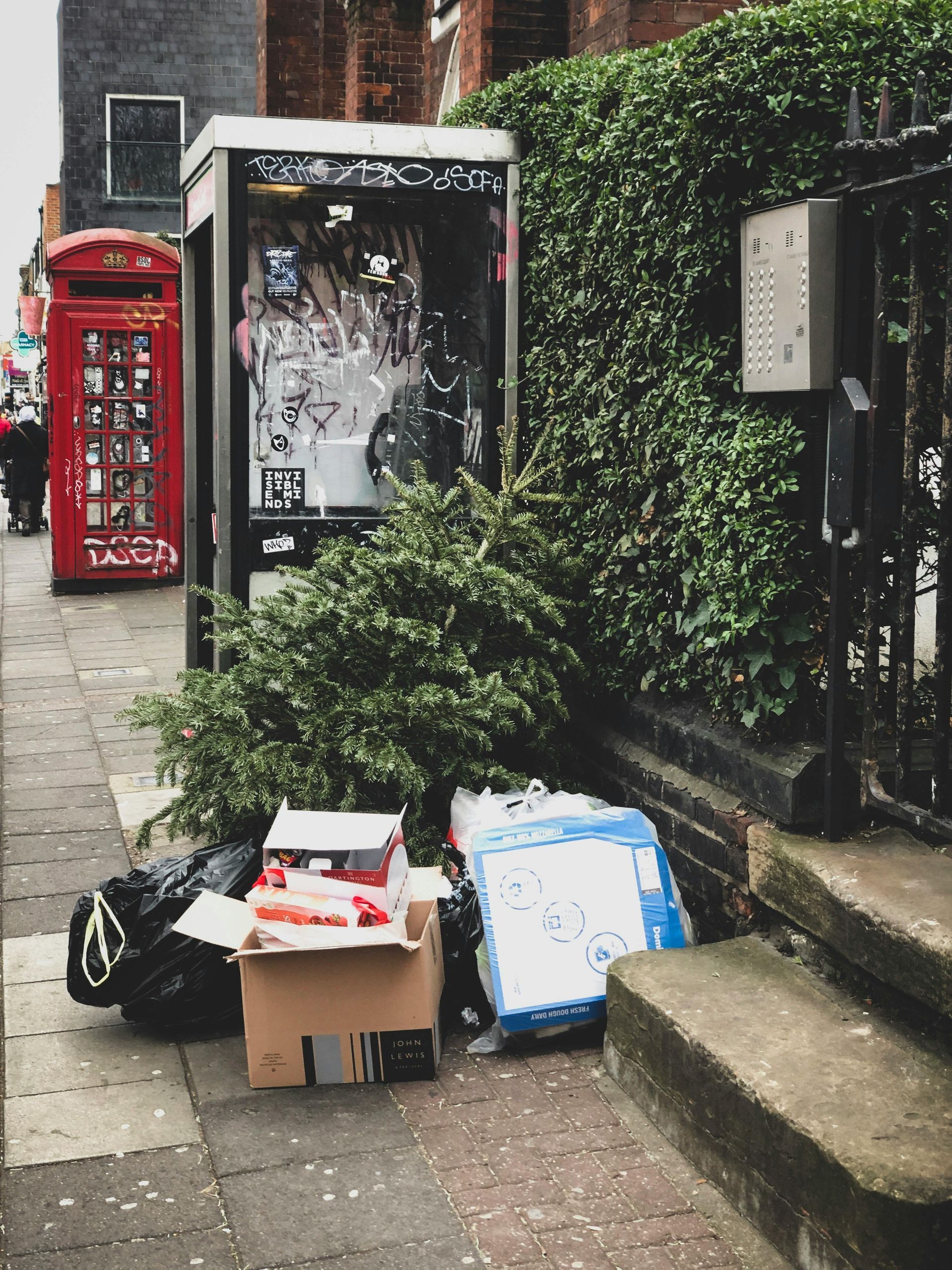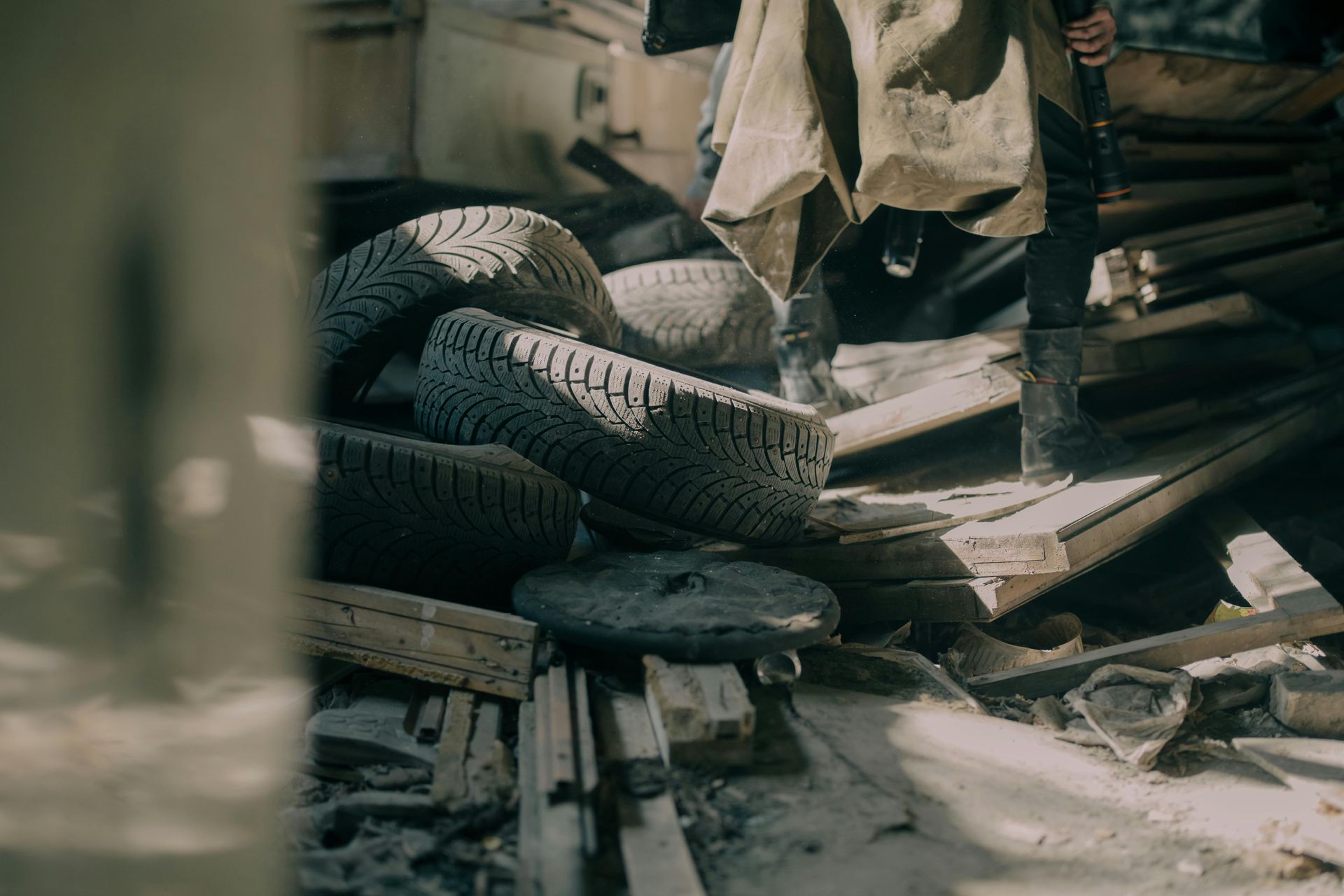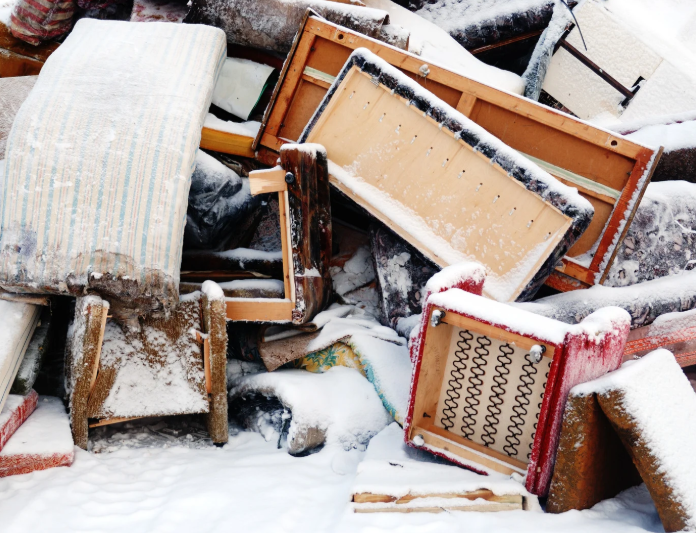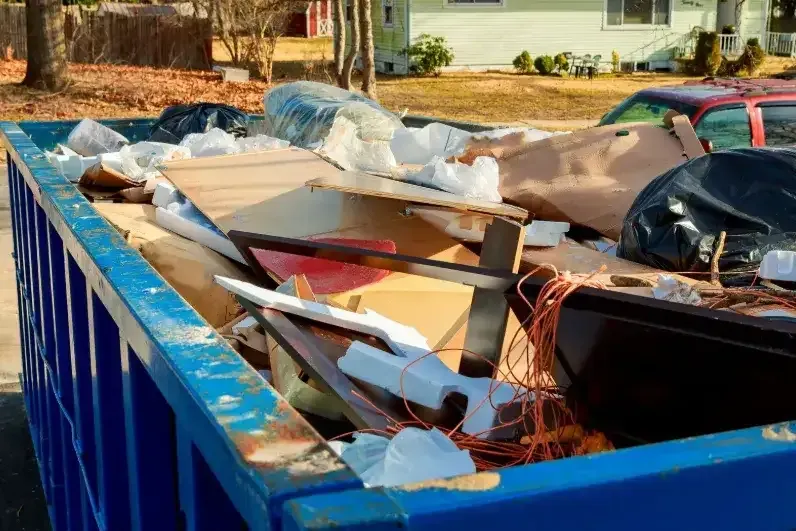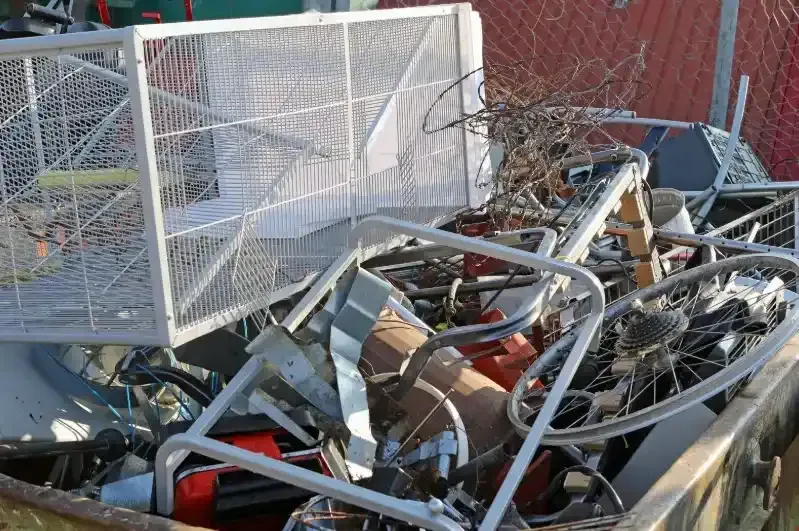Tips for Handling Office Junk During a Business Transition
Anoffice in transition is rarely a peaceful place. Desks that once held focused minds become chaotic piles of abandoned cords and cracked monitors. Hallways morph into obstacle courses of file cabinets no one’s opened in a decade. And behind every storage closet door lies a cluttered timeline of business decisions—some great, others best forgotten. If your business is about to undergo a move, merge, downsizing, or even a long-overdue renovation, one unspoken hurdle will quietly sneak up on you: junk.
Not the sentimental kind. Not even the kind you can donate with a quick call. We’re talking about brokenfurniture, outdated electronics, expired marketing materials, piles of miscellaneous clutter, and everything else that lurks in the shadows of an office space. And here's the kicker—if you don’t have a plan, this junk will slow you down, cost you money, and potentially throw a wrench into your entire transition. But don’t worry. Whether you're shifting floors or cities, preparing your office space for new beginnings doesn’t have to be a logistical nightmare. You just need the right approach to office junk—one that’s strategic, sustainable, and efficient.
Recognizing the Real Cost of Office Junk
At first glance, that old printer in the break room might not seem like a problem. But multiply that by two dozen more forgotten relics spread across your workspace, and suddenly you're looking at a sizable obstacle. The cost of holding on to office junk is rarely calculated in just dollars—it drains time, space, productivity, and morale. When businesses are transitioning, every hour counts. If employees have to step away from important tasks to deal with garbage bags or figure out what qualifies as e-waste, it becomes more than a distraction—it’s a misallocation of your most valuable resource: your team.
Office junk also creates a bottleneck in the logistics of your move. Movers won’t want to take it. Cleaners won’t know what to do with it. And if left until the last moment, it will turn what could’ve been a smooth transition into a stressful, chaotic mess. Proactivejunk removal is not a luxury—it's a necessity.

Start with a Clean Slate Mentality
Before you box up a single paperclip, take a breath and look at your office through a new lens. Think of this transition as a fresh start—a blank canvas. What do you really need to take with you? What’s essential to your next chapter? Anything that doesn’t clearly answer those questions with a "yes" is likely just weighing you down.
This mindset shift is crucial. Don’t fall into the trap of assuming that just because something’s there, it belongs in your future office. The half-functioning desk chairs, the tangle of cords no one has the matching equipment for, the marketing posters from a campaign three years old—all of it needs scrutiny. If it’s not helping you grow, it’s holding you back.
Inventory, Then Prioritize
The first step in handling office junk effectively is identifying it. This doesn’t mean just taking a cursory glance around the workspace. It means going deep—room by room, desk by desk, cabinet by cabinet. Create a detailed inventory, but not one that reads like a tax document. You’re not trying to account for every staple and paperweight. Focus on the categories of items: furniture, electronics, outdated supplies, storage clutter, and so on. Once the inventory is in place, prioritize each category.
Ask: What needs to be moved? What can be donated? What must be recycled? What’s beyond salvation and needs disposal? Categorizing this way makes the removal process far more strategic and far less overwhelming.
Respect the E-Waste
Offices accumulate electronics like trees shed leaves. Phones, routers, servers, cables, monitors—most of which stop working or become obsolete long before anyone gets around to tossing them. But here's where things get tricky: you can’t just throw this stuff in the dumpster.
E-waste is governed by very specific disposal regulations in most regions, and for good reason. These materials can leak hazardous substances into the environment if handled improperly. During a business transition, it’s tempting to rush and just “get rid” of things. But mishandling e-waste isn’t just bad for the planet—it can also open your business up to fines or even legal issues.
Partnering with a professional junk removal company that understands the nuances of e-waste disposal isn’t just smart—it’s essential.
Don’t Underestimate Paper Waste
Even in our so-called digital era, office junk often includes a surprising amount of paper. From old files to outdated brochures to printouts that no one’s looked at in five years, paper can take up more space than it should. But tossing paper can be risky—especially if it contains confidential information. Before anything hits the shredder or the bin, it needs to be reviewed. The proper destruction of sensitive documents is not only ethical, it may be required by law depending on your industry.
For companies navigating transitions, hiring a professional document destruction service or a junk removal partner that offers secure paper disposal can bring massive peace of mind. It also frees your team from the laborious and error-prone process of trying to do it themselves.
Timing Is Everything
One of the biggest mistakes businesses make during transitions is waiting too long to deal with junk. They plan the move. They arrange the new space. They organize the movers. And then—on the eve of the transition—they look around and realize they still have an office full of stuff that no one wants. Don’t let that be you.
The most effective junk removal happens well before your final move-out date. Schedule clean-outs in phases. Handle one department or section at a time. Allow space in your calendar for unexpected complications—because they will arise. A good rule of thumb: start the junk assessment and removal process the moment the transition is confirmed. You’ll be shocked how quickly clutter piles up once you start paying attention.
Keep Your Employees in the Loop
When it comes to office junk, your employees aren’t just bystanders—they’re stakeholders. They know what’s in their desks, their storage units, their departmental closets. But more importantly, they know what matters and what doesn’t. If you’re planning to remove or discard items, give employees advance notice. Let them claim personal items.
Encourage them to identify unnecessary equipment or materials. Solicit their input on what’s worth saving. Not only does this make the junk removal process more efficient, but it also prevents hard feelings. Imagine showing up to your new office and discovering your favorite ergonomic chair didn’t make the cut—not because it was unusable, but because no one asked. Communication is key.
Donation Isn't Always the Solution
There’s a noble instinct among business owners to want to donate what they no longer need. And in many cases, it’s a win-win. Your old desks or computers might still serve a nonprofit or local school. But—and this is important—not everything can or should be donated. Donation centers have guidelines. Some won’t take furniture with minor damage. Others won’t accept electronics over a certain age. And the donation process itself takes time and effort—items need to be inspected, possibly cleaned, and transported. Simply assuming you can offload everything to charity can set you up for disappointment.
A more reliable strategy? Partner with a junk removal company that can sort items for donation, recycling, and disposal. Let the professionals do the heavy lifting—literally and logistically.
Lease Agreements Matter
If your business is leaving a rented space, you’re likely bound by a lease agreement that includes a "broom-clean" clause. This means you’re required to leave the office in a clean, empty state—no junk, no leftovers, no debris. Violating this clause can cost you.
Landlords may deduct hefty fees from your deposit or tack on post-move-out cleanup charges. Worse, if you’re moving under a tight timeline, you might not have time to fix the issue once you’ve vacated. By tackling office junk removal early—and verifying your lease obligations—you ensure a smooth departure without surprise costs.
Embracing Minimalism on the Other Side
Once the junk is gone, once the movers have come and gone, and once your team is settled into your new space—it’s worth reflecting on the power of less. Transitions are hard. But they’re also an opportunity to reinvent the way you work.
A clutter-free office fosters clarity. Open spaces invite collaboration. A leaner inventory of supplies and furniture means fewer distractions and more focus. By taking junk removal seriously during your transition, you’re not just preparing your business for a smoother move. You’re setting the tone for how your company approaches productivity, space, and growth in the years ahead.
Conclusion
Handling office junk during a business transition goes beyond simply discarding outdated furniture. It’s about thoughtfully evaluating what’s worth bringing into your company’s future and what should be left behind. From broken electronics to neglected files, and that oversized whiteboard that hasn’t been used in years, the junk piling up in your office can become a silent burden, slowing down your operations and hindering progress. But the good news is, you don’t have to face this challenge alone.
Lasso & Load Junk Removal is here to help businesses throughout Gwinnett Co. clear out the clutter, streamline the transition, and move forward with ease. Our team is trained to handle the sorting, removal, and responsible disposal of office junk, ensuring that everything from outdated equipment to paper waste is taken care of efficiently. With a keen eye for what needs to go and what can be recycled or repurposed, we make sure your office space is ready for the next chapter. For reliable office clean-outs and expert junk removal services, contact Lasso & Load Junk Removal at 404-227-2017 or email Lauren.renwickk@gmail.com today.
